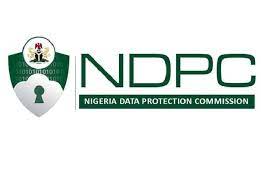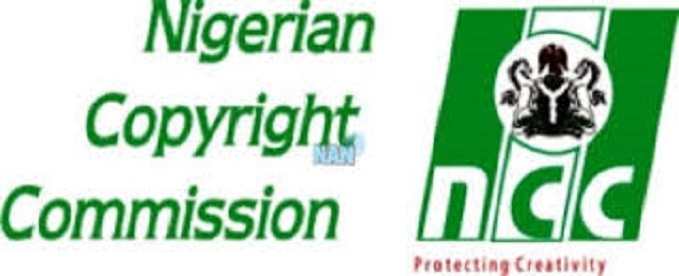E-Business
NDPC to Impose Heavy Fines on Defaulting Data Processors, Controllers this Year

Nigeria Data Protection Commission (NDPC) has announced plans to significantly ramp up enforcement and impose substantial fines on data controllers and processors that violate the Nigeria Data Protection Act (NDPA) of 2023.

Vincent Olatunji, national commissioner/CEO. NDPC
This was disclosed by Dr Vincent Olatunji, national commissioner/CEO of the Commission, in a video message outlining the Commission’s 2025 agenda, shared on the agency’s social media platforms.
A statement issued by the Communications Division of the Commission on Friday quoted Dr Olatunji as saying that, “For data controllers and processors, there is going to be massive enforcement. We have never really issued any fine, but going forward, you’ll hear us giving heavy penalties.”
He assured Nigerians that their data rights, as guaranteed by the NDPA, will be fully protected, and defaulting data controllers and processors will face strict consequences.
The Commissioner highlighted the NDPC’s extensive engagements with stakeholders across public and private sectors to promote awareness and compliance with the Commission’s mandate.
The efforts, he said, have resulted in the signing of Memorandums of Understanding (MOUs) with key organisations, including the National Insurance Commission (NAICOM), National Lottery Regulatory Commission (NLRC), the Data Privacy Office of Canada, and the Dubai International Financial Centre Authority (DIFC), among others.
Dr Olatunji also shared that the NDPC will advance to the second phase of its Strategic Roadmap and Action Plan (NDP-SRAP 2023-2027) in 2025.
This phase is expected to create job opportunities within Nigeria’s data protection and privacy ecosystem, particularly for young people.
The Commission has been actively training Nigerians in data protection and privacy, creating a pool of globally competitive experts within the data protection sector in 2025.
“There are a lot of data controllers and processors that are looking for people to work with them. Now those that we have trained in 2024, those we have certified, we are going to do more this year to actually launch them to the job market where they can really work with data controllers and processors,” he said.
Additionally, the NDPC will continue nationwide efforts to promote data protection awareness.
The Commission aims to educate citizens about their rights and the importance of data privacy while reminding data controllers and processors of their obligations under the NDP Act.
Dr Olatunji emphasised that these initiatives are part of the broader goal to embed a culture of data protection and privacy in Nigeria.
As part of its international engagement efforts, Nigeria will host the “Network of African Data Protection Authorities Conference” in May 2025, with over 40 nations with existing data protection laws expected to attend.
According to Dr Olatunji, this global event will position Nigeria as a leader in the data protection ecosystem, and bring significant economic benefits to the country.
The NDPC reiterated its commitment to ensuring data protection and privacy become integral to Nigeria’s digital landscape, building trust and fostering economic growth, the statement added.
E-Business
Q1 2025 .ng Domain Name Statistics Reflect Nigeria’s Advancing Digital Landscape

The Nigeria Internet Registration Association (NiRA) presents its report on .ng domain name registration and renewal statistics for the first quarter of 2025, highlighting the continued expansion of Nigeria’s digital footprint. The data underscores a consistent and significant adoption of the nation’s Country Code Top-Level Domain (ccTLD), reinforcing its pivotal role in the burgeoning Nigerian digital economy.

During the period spanning January to March 2025, a total of 40,791 .ng domain names were recorded. This figure comprises 22,236 new registrations and 18,555 renewals, indicating a healthy balance between the acquisition of new digital identities and the sustained commitment of existing domain name holders to their online presence.
Analysis of the registration trends within the quarter reveals a notable upward trajectory, with a 13.92% increase in domain name registrations observed between February and March 2025.
This growth signifies an increasing recognition of the importance of a localized online identity by a diverse range of stakeholders, including individuals, startups, Small and Medium-sized Enterprises (SMEs), and larger organizations.
Notably, the .com.ng extension continues to be the dominant choice, accounting for over 60% of both new registrations and renewals. This reaffirms its status as the preferred domain name extension for Nigerian businesses seeking to establish a credible and locally relevant online brand presence while maintaining global accessibility. The sustained popularity of .com.ng underscores its perceived value among Nigerian entrepreneurs and enterprises seeking to secure their digital real estate.
This upward trajectory isn’t happening by chance. The Nigeria Internet Registration Association (NiRA) has remained intentional in its drive for digital inclusion and domain adoption. Through public education, training via the .ng Academy, outreach campaigns, and partnerships with stakeholders across the tech ecosystem, NiRA has consistently advocated for the importance of owning a local domain. The current standing of .ng as the second most registered ccTLD in Africa reflects the efficacy of these efforts.
Digital adoption in Nigeria is no longer just about being online—it’s about owning your digital identity. And with a .ng domain, Nigerians are better positioned to assert that identity, connect with local and international audiences, and gain better control over their digital footprints.
As we look toward the rest of 2025, the Q1 results serve as a strong signal: more people are embracing the digital future, and the .ng domain is increasingly becoming their first step.
E-Business
NIMC Launches NINAuth Digital Identity Verification App for Govt Services

National Identity Management Commission (NIMC) of Nigeria has launched a new digital identity verification tool called the NIN Authentication (NINAuth) application.

The initiative, which forms part of President Bola Tinubu’s Renewed Hope Agenda, aims to strengthen the country’s national digital identity management framework.
The launch builds upon Nigeria’s comprehensive unified digital identity system that has been transforming access to financial services and government programs.
The NINAuth application introduces several key features focused on data security and privacy.
The platform requires explicit user consent before sharing identity information for Know Your Customer (KYC) processes, giving individuals greater control over their personal data.
The system provides seamless access to various government services, including SIM card registration, immigration applications, passport processing, tax filings, and financial transactions.
The development follows significant investment in Nigeria’s digital identity infrastructure, including a $45.5 million support from the World Bank as part of the Digital Identification for Development (ID4D) project.
As the official service for integration with NIMC’s backend infrastructure, NINAuth enables secure verification processes across ministries, departments, and agencies (MDAs).
The application is available for download on both the Google Play Store and Apple iOS App Store for users of the National Identification Number (NIN).
The rollout represents a significant milestone in Nigeria’s ongoing efforts to digitize government services and strengthen identity verification processes.
“NINAuth is a cutting-edge suite of services including web, API, and mobile verification designed to enhance data security, protect privacy, and simplify access to government services,” said Dr. Kayode Adegoke, Head of Corporate Communications at NIMC.
“The platform introduces a robust layer of protection, empowering individuals with greater control over their personal information.”
The implementation supports the objectives of the recently established Nigeria Digital Identification for Development Project Ecosystem Steering Committee, which oversees the country’s digital identity initiatives.
President Bola Ahmed Tinubu has approved the launch of the NINAuth app and directed its use for verification and authentication across all MDAs.
The application provides a secure single sign-on solution for accessing government services and social protection programs while maintaining strict data privacy controls.
The centralized approach to digital identity management represents a significant step forward in Nigeria’s digital transformation journey and its commitment to modernizing government services.
E-Business
NCC to Checkmate $3Bn Digital Piracy Market

Nigerian Copyright Commission (NCC) has set in motion a machinery to checkmate the booming copyright piracy market in the country.

Copyright piracy is said to cost Nigeria an annual loss estimated at billions of naira.
Despite the absence of a coordinated or official statistics to gauge the quantum of loss, John Asein, director general, NCC, said as far back as 2019, Nigeria lost N918 trillion ($3 billion) annually to digital piracy.
The financial damages severely impact local businesses and innovation efforts.
The commission, in collaboration with the World Intellectual Property Organisation (WIPO), has started a project to develop strategies and tools to address the menace.
Speaking at a stakeholders’ meeting on the WIPO project to address online copyright piracy in Nigeria, Asein said digital technologies have unlocked tremendous opportunities for the creative and innovation sectors.
The NCC boss said technology also poses serious challenges, including online piracy, which he said is growing rapidly.
He said: “Pirate sites continue to emerge rapidly, with statistics indicating a 6.7 per cent increase in user visits. A significant percentage of these users are students aged between 18 and 24, with social media and messaging platforms becoming major gateways for accessing pirated content.”
He added: “No industry is immune. The most affected sectors include television (43.6 per cent), publishing (27.5 per cent), film (12.9 per cent), music (7.0 per cent), and software (6.2 per cent).
“Far beyond mere statistics, the victims are no longer only foreign right owners. Many Nigerians in these sectors have also been bruised and their creative enterprises ruined.”

 Broadcasting2 days ago
Broadcasting2 days ago5 Things You Absolutely Need to Know About BBNaija Season 10

 E-Financial2 days ago
E-Financial2 days agoW’Bank Says Cash Transfer Missed Millions of Needy Nigerians

 Telecom2 days ago
Telecom2 days agoNigerians May Pay More for Calls, Data as Senate Okays 5 Percent Excise Duty

 E-Business2 days ago
E-Business2 days agoNCC to Checkmate $3Bn Digital Piracy Market

 General News2 days ago
General News2 days agoEFCC Tells Nigerians to Shun Ponzi Schemes Like CBEX, Others

 E-Business2 days ago
E-Business2 days agoNIMC Launches NINAuth Digital Identity Verification App for Govt Services

 Telecom2 days ago
Telecom2 days agoMastercard Report Reveals Top Travel Trends Shaping Africa in 2025

 E-Financial2 days ago
E-Financial2 days agoCBN, NIBSS Unveil BVN Platform for Diaspora Nigerians

























